
Explaining Football from Below
08.09.17
Mark Perryman of Philosophy Football describes the possibilities of fan culture as a social movement.
During the international break a mini-spat over the England players’ pride, or lack of, in wearing the three lions on their shirt provided a helpful starting point towards the remaking of football as a social movement. Explaining England’s inability to go even 1-0 up against the proverbial minnows of the Maltese football team until well into the second half has a lot less to do with the lack of emotional commitment from Harry Kane et al to end now the more than half-century’s worth of years of hurt than their actual inability to play. ‘Pride’ is the easy cop-out, what we’re actually witnessing is the ever-decreasing quality of English football. How many of England’s starting eleven would Paris Saint German be chasing after with their chequebooks, or Barcelona and Borussia Dortmund be in the market for after their most talented players have been sold off ? Of course the best eleven England can put on a pitch isn’t all bad but mostly their talent is boosted at club level by playing alongside foreign, more technically gifted and able players. On their own they’re not half as good. And for the players who turn out for United, City, Chelsea, Liverpool and Spurs a World Cup Qualifier, and short of reaching the long-forgotten semi-final stage, the tournament itself, doesn’t come close to being the biggest match of their careers compared to the more realistic chance, until recently at any rate, of Champions League glory. It gets worse, the enormous wealth the Premier League provides to their clubs means even for those players faraway from making it into the Champions League, the season-long battle to maintain that status pushes England games pretty far down their, and their coaches, list of priorities. Arguably we might even stretch this to securing promotion from the Championship (sic) to the Premier League too.
Lack of passion? No, the result of commercial calculation. This is at the core of the sickness of what football has become, the hopeless confusion of mistaking the richest league in the world with being the best. It’s no accident that the Championship play-off final is described almost exclusively in terms of the riches awarded to the victor rather than the quality of the football played.
For a period those disillusioned with the Premier League and all that adopted the mantra ‘Against Mod£rn Football.’ We first turned this into a T-shirt having spotted a Croatian Fans’ banner at Euro 2008 ‘ Against Mod€rn Football.’ The sentiment was internationalist enough to make perfect sense. But being ‘against’ is the classic oppositionalist default position. A catchy phrase that fits neatly on to chest sizes small-XXL but ‘Against Mod£rn Football’ is increasingly problematic in three ways.
Firstly, there’s more than one version of modernity, is the ‘against’ aimed at the growth of women’s football, refugee leagues, a game without borders, the irresistible plurality of where fans come from, race, gender, sexuality and nationality divisions broken down. Being against all that ends with oppositionalism masking conservatism, or worse. Secondly the business of football has become inseparable from multinational corporate power. The macro-politics to reform the game traditionally adopted by both Labour and groups such as the Football Supporters Federation means any agency to enforce these policies seems almost impossible to imagine. Somehow I think an incoming Labour Government is going to have more immediate issues on its mind than nationalising the Premier League. Thirdly, therefore, there is a necessity to reimagine fan culture not as hardpressed consumers but as a social movement with the capacity itself to make change.
Currently this is very much a minority movement, but all such movements start out with big ambitions and modest advances. Their potential to grow and effect change is dependent on the ability to inspire via small victories which help convince wider forces this is a direction of travel worth pursuing. We can see this in the rise of militantly anti-racist ultra groups, at Clapton, Whitehawk and elsewhere. The growth of start-up football clubs, Hackney Wick FC, City of Liverpool FC and the women’s football club AFC Unity in Sheffield. The spread of community ownership up and down the divisions. The pro-refugees message heard from at least some stands, not on the scale of what was seen across the Bundesliga but present nevertheless. 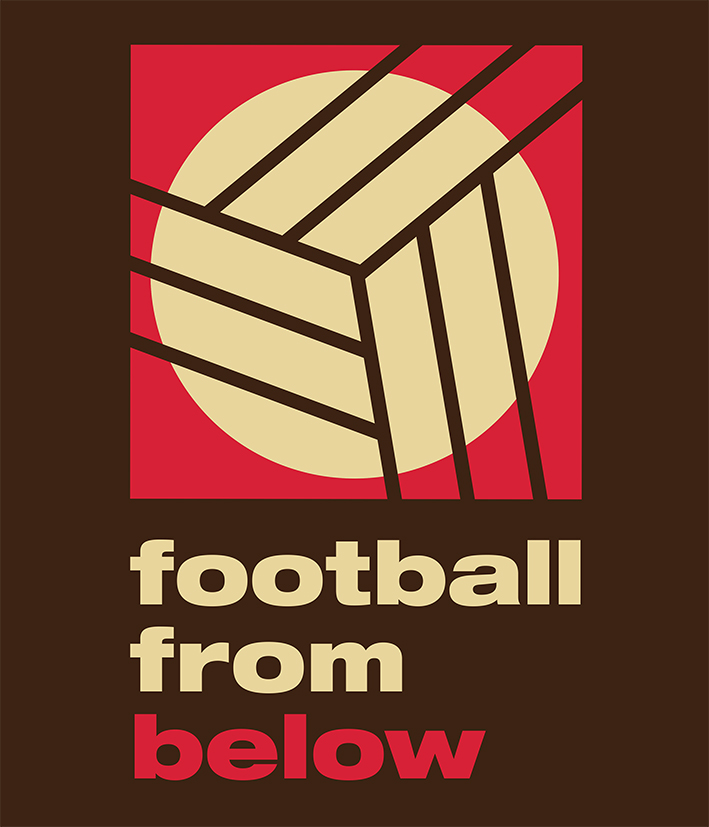
At the core of any such movement is gender. Recognising that if football is to become modern for all then the sport’s entrenched masculinity has to be challenged. Treating women’s football as different yet equal is a key step towards a truly inclusive game. On this basis the Equality FC initiative at Lewes FC where mens and womens playing budgets are the same, is a model for all clubs to aspire to if the pressure ‘from below’ can be built.
This isn’t fantasy football. It is about the remaking of the political, the recognition that it is in popular culture more than any other space that ideas are formed, the limitations on what is possible challenged and transformations take shape. Brighton, now a Premier League club, playing in their own city, an ambition only made possible because of a 15-year campaign by their own fans is a vital illustration of this possibility, a club culture absolutely framed by that fan-led campaign. And it is fitting therefore that it is in Brighton at The World Transformed Festival alongside Labour Party Conference that many of those involved in these practical initiatives will be gathered together by Philosophy Football to launch a discussion on what a ‘Football from Below’ might look like.
Any such discussion if it is to have a meaningful purpose demands allies. Labour and the trade unions via such a dialogue will be forced to address the narrowness of their own agendas and the scarcity of their own alliances. Football is a signifier of so many other spaces in popular culture where Labour and the trade unions need to be present, be part of, connecting ideas to lived experience towards change. New Labour adopted football in the same way it adopted Britpop as a cultural accessory, providing photo opportunities and celebrity endorsements. A flimsy appropriation out of a flimsy politics. Corbynism promises something different, the framing of a popular, cultural politics will be vital to any fulfilment of that proud boast. Football just one of what should become countless journeys of putting the ideas of Corbynism into practical extra-parliamentary achievement.
‘Football from Below’ wears the colours of FC St Pauli as our inspiration. But it is time to make that change in our own image too. From the bottom-up, not in opposition to those who choose to follow the Premier League moneybagged bandwagon, that would be not only futile but also self-destructive. Instead as a minority we will be pioneering the practical possibility of building a game that doesn’t have to be run in the way it is. Rethinking football as a sport for all not a business to be run. Idealistic? Guilty as charged.
Philosophy Football’s Football from Below T-shirt is available from here
Rocking against Racism, Then and now
01.09.2017
Shirsho Dasgupta interviews Mark Perryman Co-founder of Philosophy Football about the meaning and sgnificance of Rock against Racism
Shirsho Dasgupta As someone who lived through the era, how would you describe the socio-political and economic situation of the United Kingdom in the 1970s and early 1980s?
Mark Perryman The late 1970s have to be remembered as an era of intense conflict. Huge industrial disputes, the miners strikes and Grunwick, the public sector strikes of winter of ’78. Even the bread bakeries went on strike! The war in Northern Ireland, the rise of the fascist National Front and their increasingly violent marches. At the same time this was the dawn of Thatcherism and the eclipse of postwar social democracy.
SD What was the appeal of punk and reggae at the time? Was it the lyrics, the stripped-down raw sound, or a combination of both?
MP This was the era of Pink Floyd, Genesis, Yes, ELO. They seemed increasingly divorced from the lived experience of teenage Britain. The Rolling Stones were living off a heyday a decade old, nearly 40 years later they still are. The teeny bop bands were taking over the charts, the Bay City Rollers. The Sex Pistols Bill Grundy live TV interview, which I can still remember absolutely vividly quite literally said ‘up yours’ to all this. And pretty soon there emerged some sort of commonality with reggae too. That wasn’t universal but there was at least an awareness that different youth culture communities were finding their own voice in place of the one pop culture manufactured for them.
SD Besides the music, what were the other aspects of Rock against Racism that were significant?
MP I’d answer that in two ways. First, there was no certainty that the nihilism of punk, complete with Nazi-swastika imagery, would turn in a progressive, anti-racist direction. The fact that it did was both hugely significant and  down to Rock against Racism (RAR). Second, RAR was a movement anyone could join because there was nothing to join. No membership card, no delegates to be elected, no conferences to attend, no votes to be had. Just a roll of dayglo stickers, a badge, and a do-it-yourself gig culture, that was what made you a member, a part of it. This was a politics from below, it was fun, anybody could do it however, whenever, wherever. And this was all pre-social media. A phenomenal achievement that has never really been matched since. The closest has been this years ‘ Oh Jeremy Corbyn ‘ chant, a sense of being part of something much bigger than ourselves alone but yet to take a popular culture form. If and when it does the potential for a shift to the left will be huge. The writer Tom Blackburn calls this potential ‘Corbynism from Below’ I like the sound of that.
down to Rock against Racism (RAR). Second, RAR was a movement anyone could join because there was nothing to join. No membership card, no delegates to be elected, no conferences to attend, no votes to be had. Just a roll of dayglo stickers, a badge, and a do-it-yourself gig culture, that was what made you a member, a part of it. This was a politics from below, it was fun, anybody could do it however, whenever, wherever. And this was all pre-social media. A phenomenal achievement that has never really been matched since. The closest has been this years ‘ Oh Jeremy Corbyn ‘ chant, a sense of being part of something much bigger than ourselves alone but yet to take a popular culture form. If and when it does the potential for a shift to the left will be huge. The writer Tom Blackburn calls this potential ‘Corbynism from Below’ I like the sound of that.
SD Do you think in the age of rising Islamophobia, homophobia, and Trump, we can describe our situation today as similar to that four decades ago?
MP Not exactly. But what we are beginning to witness, this is where the parallels lie, is the break up of another period of consensus, neoliberalism. In Britain this is sparking a shift to the Left led by Jeremy Corbyn but that break is much less obvious elsewhere, for example Trump in the US, Macron in France.
SD Do you think today a cultural movement like RAR can be as potent a fighting force against the right-wing as it was forty years ago?
It can be potent but it won’t be the same. It’s not really for me and those of my generation to speculate on what it would look, or sound, like, that’s for the new and next generation Left to shape. But I do think it is entirely valid to assert the necessity of such a clash, what Stuart Hall described in 1978 as ‘ one of the timeliest and best constructed of cultural interventions’ to consder the reasns too for the near total absence of anything of RAR’s scale of ambition, imagination and reach since the 1980s aftermath of miners solidarity gigs and of course Red Wedge, and the conditions that might spark something of this sort again. That’s what I see in Corbynism, and perhaps #grme4corbyn too, certainly the ‘Ohhhh Jeremy Corbyn Chant’ . Not rooted in the individual, however appealing Jeemy Corbyn might be, nor the Labour Party, however big it has becime in terms of membership, but this much more generalized mood that at last change is becoming possible. If a popular cultural movement emerges then this shift will be immeasurably strengthened and right now we have the makings of this as a possibility. It’s a window of opportunity, for the first time since ’78 and RAR’s Carnival helped to ensure the defeat of the NF.
Mark Perryman is a contributor to Reminscences of RAR : Rocking against Racism 1976-1982. His own bookThe Corbyn Effect is out in mid-September available to pre-order here.
Football from below, or will Ohh Jeremy Corbyn ever be sung in the stands?
23.08.17
Sunday 24th September, 11am-1pm at The World Transformed Festival, Brighton, Community Base , 113 Queens Road, Brighton BN1 3XG
Even with Jeremy Corbyn at Number Ten - the address not the squad number – short of nationalising football the prospects for change remain remote. Any such policies from above to shift football back to its roots as the ‘people’s game’ are of course welcome but this session develops instead ‘football from below.’ Using an imaginative combination of spoken word, visuals and participative discussion aided by practical grassroots examples we will be challenging the idea of football as a game to watch and consume by reimagining football as a social movement. Presented by Philosophy Football.
List of Speakers
Attila the Stockbroker, punk football poet
Bobby Kasanga, founder Hackney Wick FC
Heather Wakefield, UNISON, Head of Local Government
Jacquie Agnew founder Equality FC initiative
Joe Kennedy, author Games without Frontiers
Kadeem Simmonds, Sports Editor, the Morning Star
Mark Doidge, contributor Fan Culture in European Football and the Influence of Left Wing Ideology
Naomi Westland, directed Amnesty International UK”s #FootballWelcomes pro-refugees campaign
Stephen North, co-author Build a Bonfire : How Football Fans United to Save Brighton and Hove Albion
Suzy Wrack, writes the Guardian weekly women's football blog
Chaired by Mark Perryman, co-founder the self-styled ‘sporting outfitters of intellectual distinction, aka Philosophy Football
Speaker biogs
Attila the Stockbroker was one of the stalwarts of the Brighton fans’ campaign to return their club to the city and helped to initiate the Fans United action in their support. A longstanding fan of FC St Pauli too, for a day job Attila is a punk football poet, quite possibly a unique job description.
Bobby Kasanga is a former gang member who has served time in prison. In 2015 he founded the community football club Hackney Wick FC, whose club motto is ‘ our borough, our club’. In season 2017-18 Hackney Wick FC made history by competing in the FA Cup for the first time.
Heather Wakefieldis a Chelsea season ticket-holder as well as being UNISON, Head of Local Government which includes responsibility for opposing the privatisation and closure of publicly owned sports facilities.
Jacquie Agnew is a Director of Lewes FC and head of Women’s Football at the club. In July 2017 Lewes FC became the first club in world football to establish equal playing budgets for its men’s and women’s teams, an initiative they call Equality FC.
Joe Kennedy is the author of Games without Frontiers which has been praised by When Saturday Comes as ‘ a rich exploration of football in its broadest sense – not as merely a set of match results, statistics and tactical approaches but as a living social entity.’
Kadeem Simmonds graduated from Brighton University’s renowned sports journalism degree to become the UK’s first black sports editor on a national newspaper.
Mark Doidge is a Senior Research Fellow at Brighton University with an expertise in anti-racist initiatives in football that has been recognised by a range of bodies including UEFA and FARE (Football Against Racism in Europe). Most recently he has been researching the growth of refugees’ football.
Naomi Westland is media manager at Amnesty International UK which in April this year to mark the 80th anniversary of the bombing of Guernica launched the #FootballWelcomes pro-refugees campaign. Two of the Basque refugees who came to Britain from Spain became the first Spaniards to play professional football in England.
Stephen North is a professional actor and occasional musician. A longstanding Brighton fan he has also co-authored with Paul Hodson two books on the fans’ campaign to bring their club back to the city.
Suzy Wrack writes the weekly women's football blog for the Guardian as well as being a long-standing socialist activist and Arsenal fan.
Mark Perrymanwas for many years closely involved with the development of a ‘fan-friendly’ culture around England fan culture at Euros and World Cups. More recently he has become involved in non-league football via his local club, Lewes FC. A member of both the Labour Party and Momentum Mark is also the co-founder the self-styled ‘sporting outfitters of intellectual distinction, aka Philosophy Football .
The World Transformed festival website is here

Were you still up for?
08.08.17
The shock of the General Election hasn’t even begun to settle down. Mark Perryman recommends summer reads to help grapple with interesting times.
The audacity of hope versus the mendacity of the weak n wobbly. 20 years ago it took until the early hours before that ‘were you still up for Portillo’ moment established the sheer scale of the Tories’ meltdown. Two decades on this was different. Firstly, the indicator, the exit poll, came a whole lot earlier leaving viewers with hour after hour of ‘surprise’ results to look forward to. Secondly, Labour’s triumph, despite missing the overall majority, was both so unexpected and based on such a radical appeal.
In politics nothing of course stands still. Yesterday’s radicalism becomes tomorrow’s consensus while new issues arise to challenge us to change pre-ordained positions. Rutger Bregman’s Utopia for Realists and Doughnut Economics by Kate Raworth were both published prior to 8th June, now they are each required summer reading for Labour politicians and activists who might mistakenly believe that ‘one more heave’ will be sufficient to dislodge the Tories and effect progressive change.
 Naomi Klein’s latest No Is Not Enough sets the necessity for an evolving, always more radical, project in the context of how being against is never, ever, sufficient, we need to be for too. Brilliantly written, this is one of the current generation’s brightest thinkers writing at her very best. Rules for Revolutionaries has a similar US bias to Naomi’s book but is no less necessary to read as a result. Co-authors Becky Bond and Zack Exley draw lessons, what they call ‘big organising’, from their hands-on experience in the Bernie Sanders campaign that no serious Labour activist can afford to ignore if next time a decent second in the key 66 marginals is to be turned into a runaway first place.
Naomi Klein’s latest No Is Not Enough sets the necessity for an evolving, always more radical, project in the context of how being against is never, ever, sufficient, we need to be for too. Brilliantly written, this is one of the current generation’s brightest thinkers writing at her very best. Rules for Revolutionaries has a similar US bias to Naomi’s book but is no less necessary to read as a result. Co-authors Becky Bond and Zack Exley draw lessons, what they call ‘big organising’, from their hands-on experience in the Bernie Sanders campaign that no serious Labour activist can afford to ignore if next time a decent second in the key 66 marginals is to be turned into a runaway first place.
The Thatcherite Offensive by Alexander Gallas is an important new contribution from an old perspective, the work of Nicos Poulantzas, towards an analysis of an era most of us would prefer to forget, Thatcherism. Taking an admirably internationalist look at the potential to challenge neoliberalism the edited collection The Left, the people, populism ranges over a wide range of subjects and European countries, a vital antidote to the parochialism of the English Left. Of course such inwardness does get punctured from time to time, recently the #blacklivesmatter movement in the USA has been one such source of inspiration, Wesley Lowery’s They Can’t Kill Us All is the riveting tale of how this movement exploded on the US political terrain and helped begin to shift the boundaries worldwide of debate on race, class and policing to good effect.
Jess Phillips is best known perhaps for her explosive interventions to burst the Westminster Bubble. Too easily pigeon-holed simply as an arch anti-Corbynite her book Everywoman reveals instead a grassroots activist-feminist turned MP who more than anything else wants to upset the status quo, whoever or whatever is defending it. Jamie Bartlett would certainly recognise the necessity of such an opening-up, in Radicals he provides a hugely original account of how it is outsiders, often sitting uneasily on the traditional left to right spectrum who across the globe are forcing change to the mainstream. Leon Rosselson’s short memoir That Precious Strand of Jewishness That Challenges Authority provides a sense of one such source of this radicalism, an important rejoinder to the current febrile debate over what is, and is not, anti-semitic. But of course outsiders, radicals can originate from all variety of sources, the English Defence League for a period posed a real challenge to what it was assumed were settled notions of a multicultural and diverse society, fomenting an unapologetic racism, Islamophobia and anti-immigration into a street-fighting weekend army. Loud and Proud by Hilary Pilkington, is a vital study of the EDL in preparation for any revival of a similar type of movement.
What might frame the endurance of the revival on our side? Most would argue that this will depend on the continuing popularisation of the anti-austerity message. Few books will do this better than Polly Toynbee and David Walker’s Dismembered a fact-filled polemical description of the scale and depth of our public services starvation of resources. Housing was a hugely important issue to many of the millennials who cast their vote in such numbers for Corbyn. Rent Trap by Rosie Walker and Samir Jeraj combines an analysis of the growth of the private rental market and alternatives which would put the needs of tenants first and the profit margins of greedy landlords second. 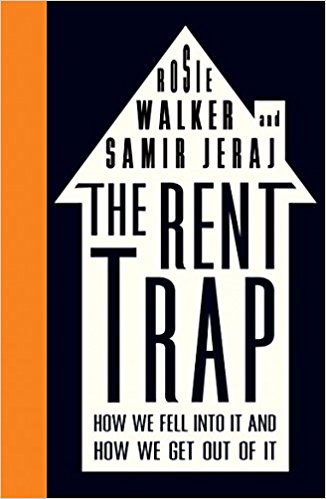
There is nothing worse than failing to look back to the past for lessons for today, and tomorrow’s Left. Unfortunately however the process of going backwards to go forwards too often becomes a recipe of being trapped by yesteryear’s models. Don Watson’s Squatting in Britain 1945-1955 is a text book avoidance of that trait and deserves a wide reading too post-Grenfell. Another book useful for those reflecting on Grenfell is Justice Denied a powerful reminder that righting wrongs is never anything less than a battle , Orgreave and Hillsborough are more than enough testament to that. Gregor Gall’s Bob Crow, Socialist, Leader, Fighter is described as a ‘political biography’ which neatly sums up its appeal. The story of not just a forceful personality who fought his way to the top of his trade union but the values he sought to protect and promote via the campaigns he helped lead. A very different story is Jonathan Lerner’s autobiographical Swords in the Hands of Children. This is the era of ’68, all that hope, liberation and revolt and when all of that came to nothing, the self-destruction that came next.
Twentieth Century Communism is an uncanny read for those interested in rediscovering the range, content and meaning of perhaps the most important radical tradition of the past century. The latest edition is a special issue dedicated to the literature of communism.Edited by Paul Flewers and John Mcllroy 1956 : John Saville, EP Thompson & The New Reasoner combines both the original ’56 debates with a hugely effective and informative commentary provided by the editors. But of course it is 1917 which is attracting the most attention in the Russian Revolution’s centenary year. The Dilemmas of Lenin by Tariq Ali is no hagiography yet the message of the enduring case for revolution shines through, whatever the changes in circumstances. For a short and very readable account of the movements that produced the Russian Revolution Dave Sherry’s Russia 1917 : Workers’ Revolution and the Festival of the Oppressed. Written with a style few other authors would even attempt to match October by China Miéville is novel, yet politically compelling, a book to appeal to those who remain drawn to the romance of the revolutionary ideal. For an insight into the culture the revolution helped produce and then propel on to a world stage 1917 : Stories and Poems from the Russian Revolution edited by Boris Dalyuk is the perfect accompaniment.
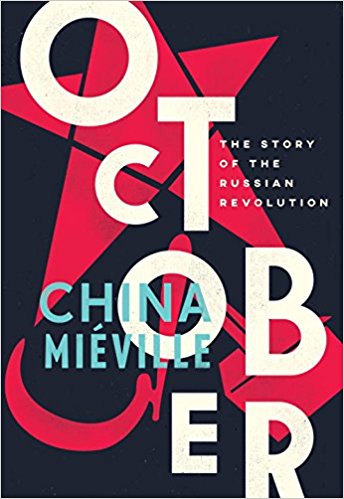
Of course over the decades a culture of resistance has taken many forms, the latest #grime4corbyn too recent to have very much written about it yet. Trish Winter and Simon Keegan-Phipps trace folk’s peculiarly English traditions in their book Performing Englishness. Billy Bragg’s Roots, Radicals and Rockers is a magnificent account of skiffle which along the way Billy claims helped change the world. Two books that cover more recent collisions of music and politics are Fightback: Punk, Politics and Resistance edited byThe Subcultures Network and the Gavin Butt, Kodwo Eshun,Mark Fisher edited collection Post Punk Then and Now. Dave Randall’s Sound System : The Political Power of Music. is an unforgiving call to guitars, drums, keyboards, sax, by any instruments necessary to change the world.

Of course no summer would be complete without the joys of salads, picnics, barbecues with ice-cold chilled drinks on the side. Be overwhelmed with ideas to sparkle the appetite, and without a sniff of meat in sight from Sam Murphy's superb Beautifully Real Food.
And the other treat no summer would be complete without is of course a decent thriller. Chris Brookmyre’s latest Want You Gone certainly won’t disappoint with his customary mix of dramatic plot turns, rich humour and tartan noir. Nor should the grown-ups be allowed to have all the reading fun either. Michael Rosen’s latest creation , Uncle Gobb, reappears in Uncle Gobb and the Green Heads, hours of fun for young readers while adults can ponder if this Gobb character is really the living embodiment of the marketisation of our chidren’s education. 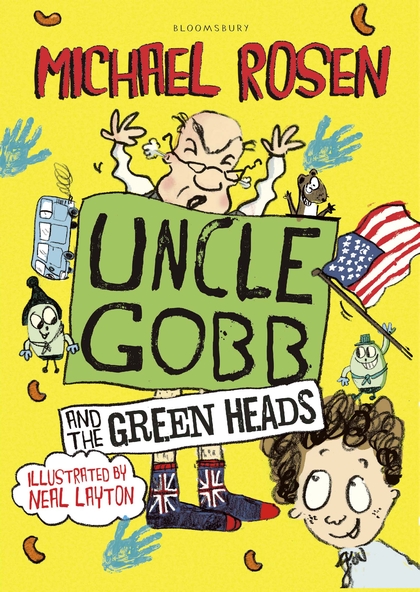
Making sense of 2017’s political surprises requires both an understanding of the present and the ability to connect this to a theoretical framework as a means of exploration and explanation too. The reissue of Perry Anderson’ s The Antinomies of Antonio Gramsci with a new, and very substantial, preface is a superb sign post towards such an intellectual journey.
Unarguably the most significant populariser of Gramsci, and one of the founders of the modern academic discipline of Cultural Studies, Stuart Hall, has been treated to a recent spate of well-deserved books of late. His partial autobiography Familiar Stranger has been published posthumously with the help of his long-time collaborator Bill Schwarz. David Scott’s Stuart Hall’s Voice consists of a wonderfully original format, a series of letters written to Hall after his death exploring the significance of his legacy to so many contemporary intellectuals who remain enthralled by his influence. Within the academy that influence remains most alive, and at its best still kicking too, in cultural studies, the publication of Hall’s lectures from 1983 which framed this influence, Cultural Studies 1983 : A Theoretical History edited by Jennifer Daryl Slack and Lawrence Grossberg therefore could not be more welcome. 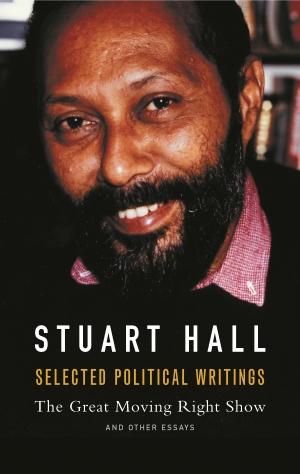
And it is Stuart Hall who post-election provides us with our book of the quarter too. Wherever we spend the summer relaxing and recovering, the collection Stuart Hall Selected Political Writings : The Great Moving Right Show and other Political Essays is both a timely an enjoyable read. On the page, and for those of us who were lucky enough to hear him, as a speaker too, Stuart Hall brought the analysis of politics alive in a way which is sorely missed in 2017. These essays provide a sharpness of intellect and warm embrace of analysis that are a positive joy to read, new and afresh or but read in a new times, good and bad, that even Stuart Hall could never have foretold.
Mark Perryman is the co-founder of Philosophy Football. His own book, the edited collection The Corbyn Effect is out from Lawrence & Wishart in mid September. 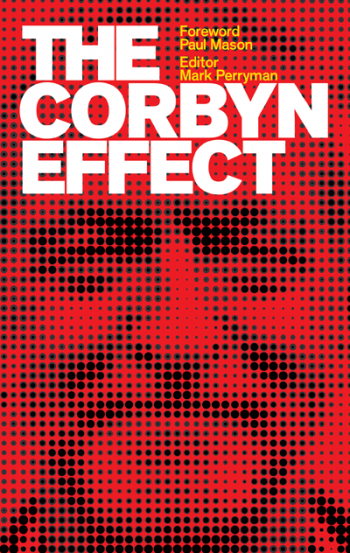
Note No links in this review are to Amazon, if you can possibly avoid buying your books from corporate tax dodgers please do so.
Nothing To Lose But Our Chains
01.07.17
As the annual cycling spectacle of the Tour De France begins Mark Perryman argues the case for two wheels good
Who would have guessed it. Karl Marx was clearly a bike mechanic when he wasn’t plotting the downfall of capitalism. ‘ Nothing to lose but your chains’ is handy advice when the derailleur slips and furious pedalling propels bike and rider precisely nowhere. OK Marx was more interested in liberating the workers of the world than the freedom of the road though with committed cycle-commuter Jeremy Corbyn quite possibly in need of a Downing Street bike rack soon there doesn’t seem a better time to make the case for cycling as the people’s sport.
For those who take an interest in the competitive side Le Tour will be on the TV for the next three weeks as it weaves its way from the Grand Départ in Germany ,through Belgium, a quick detour to Luxembourg and across France to the traditional finish on the  Champs Élysées. That’s two boxes ticked straightaway in my case for a people’s sport. Firstly, despite Sky’s sponsorship of the premier British team competing, the race is broadcast on terrestrial TV, live and highlights packages, free to air on ITV4. And secondly this is a genuinely internationalist event. Fundamentally French of course but shared with all manner of other European countries too in terms of where it may start, the stages too, but never the ending, that will always be Paris. Not quite the proletarian internationalism of our Marxist dreams but not a bad model for a sporting culture beyond borders. And of course lined along the route in their hundreds of thousands the fans, none paying even a cent, or nowadays a Euro, for the privilege. Nor is there any significant infrastructure to waste huge amounts of money in, leaving stadia and other facilities behind never to be filled again. Instead just about the only spend is to improve the road surface, for the benefit of all. For the many, pedestrians, cyclists and car-drivers alike.
Champs Élysées. That’s two boxes ticked straightaway in my case for a people’s sport. Firstly, despite Sky’s sponsorship of the premier British team competing, the race is broadcast on terrestrial TV, live and highlights packages, free to air on ITV4. And secondly this is a genuinely internationalist event. Fundamentally French of course but shared with all manner of other European countries too in terms of where it may start, the stages too, but never the ending, that will always be Paris. Not quite the proletarian internationalism of our Marxist dreams but not a bad model for a sporting culture beyond borders. And of course lined along the route in their hundreds of thousands the fans, none paying even a cent, or nowadays a Euro, for the privilege. Nor is there any significant infrastructure to waste huge amounts of money in, leaving stadia and other facilities behind never to be filled again. Instead just about the only spend is to improve the road surface, for the benefit of all. For the many, pedestrians, cyclists and car-drivers alike.
Of course like previous Tours this one will be mired in an unfolding drugs controversy . Made all the more awkward this year though forBritish cycling fans by the fact that the spotlight will be mainly on Team Sky, rider and race favourite Chris Froome and Team Sky Principal Dave Brailsford. Allied with both the unresolved drug allegations against Bradley Wiggins and the prolonged furore over sexism and bullying in and around the Olympic Team GB track cycling squad this has all threatened to dim the golden glow of Britain’s single most successful sport over the past decade. Cycling has taken a knock, there’s not much doubt about that. But the roots of its appeal are now so deep all the signs are that it will not only survive but continue to flourish too.
Marx, notwithstanding my spurious claims for his contribution to the art of bicycle maintenance (famously, similar claims have been made for Zen and the art of motorcycle maintenance too) is at least partially responsible for the answer. Cycling, like all sport, is socially constructed. It is a leisure activity we can take part in without scarcely even noticing. What other sport can double up as a means of getting to work, to do the shopping, to pop down the pub? A bike can provide the basis for a family day out too, perhaps best of all it’s a habit we can pick up as children and once we’ve learned not to fall over it’s a skill we never lose.
Of course at the upper end of cycling culture, particularly men who take the spprt up while suffering from a midlife cycling crisis, the bikes cost the proverbial arm and a leg. Many observers suggest that this in part explains the decline in golf, middle aged men who should know better investing in handbuilt carbon frames with all the gear to go with it rather than ever-escalating green fees to tee off at the most expensive 18 holes. Yes the recession hurts even the most well-paid, so there’s almost certainly something in this but the class enemy on two wheels represent only one particular portion of cycling’s growing popularity.
Likewise the impact of the drug, bullying and sexism scandals. Elite success, Wiggins and Froome winning Le Tour, bucketloads of Olympic Cycling Gold medals certainly contributed something to cycling’s appeal. It was a bit like Coe, Ovett, Cram and Elliott’s success on the track coinciding with the late 1970s to early 1980s running boom. A factor, but not the total explanation the media-boosters would like to claim for their coverage.
A green environmentally-friendly pursuit, increasing investment in safer cycling routes and paths, sunnier summers (I know, climate change is devastating but right now while the sun shines plenty are making the most of it), austerity staycation culture, these are at least as important factors, and together add up to a whole lot not more. Hence the social construction explaining cycling’s growing and enduring popularity, not to mention to grow some more under a genuinely cyclist socialist PM. There’s a durability to this appeal unikely to be materially affected by news of dodgy medicinals or bullying coaches.
Sport’s core attraction is always assumed to be competition. Wrong. For most this only applies to the spectators, those who watch but don’t do. Being on the losing side bringing up the rear does more to deter the young from sport than virtually anything else. And once deterred regardless of the presence of compulsory sport lessons hardly anything else proves effective in reconnecting the inactive with participation. This is where cycling is key. ‘ Just do it’? Half the time we don’t even realise we’re doing it , the blurring between means of transport, leisure activity, competitive sport an advantage, most certainly not a disadvantage.
I’ll conclude with just about the most communistic sports event I’ve ever taken part in, the increasingly popular cycling sportive. No the organisers aren’t planning revolution via long rides through the countryside but to my mind 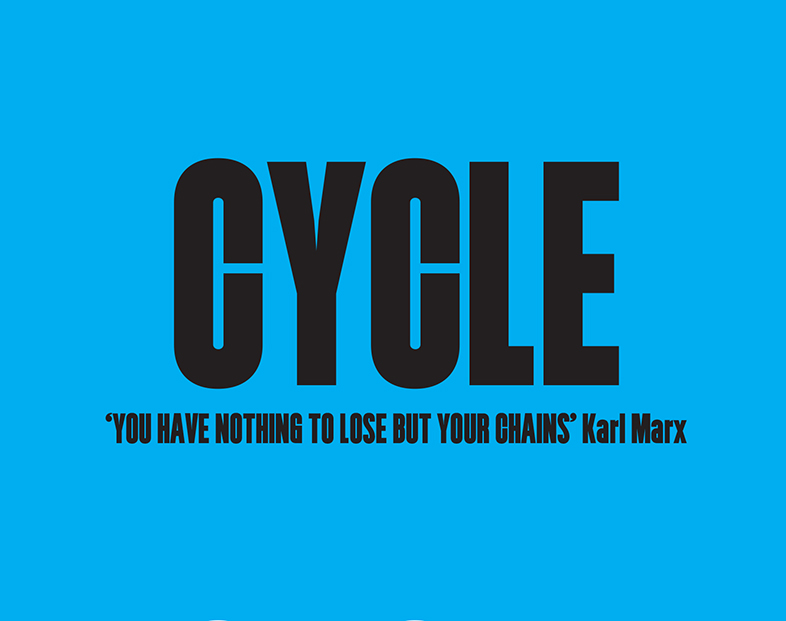 the format unwittingly subverts the competitive instinct via equalising participation. Staggered starts over varying distances so nobody knows who the winners are, or crucially, the losers either. For some racing against their own individual clock, for all a collective race against the shared distance and terrain. More often than not raising money for a good cause. The same prize wherever you finish,. Not that I’ve ever seen Marx on one mind, must be back in his bike shed working on unfettering those chains.
the format unwittingly subverts the competitive instinct via equalising participation. Staggered starts over varying distances so nobody knows who the winners are, or crucially, the losers either. For some racing against their own individual clock, for all a collective race against the shared distance and terrain. More often than not raising money for a good cause. The same prize wherever you finish,. Not that I’ve ever seen Marx on one mind, must be back in his bike shed working on unfettering those chains.
 Mark Perryman is the co-founder of Philosophy Football. The ‘Nothing to Lose but Your Chains’ Cycling T-shirt is available from here
Mark Perryman is the co-founder of Philosophy Football. The ‘Nothing to Lose but Your Chains’ Cycling T-shirt is available from here
A Riot of Our Own
31.03.17
8th April is the 40th Anniversary of The Clash Debut Album Mark Perryman asks what the 1977 punk and politics mix was all about?
The birth of punk for most is dated on or round 1976 with the November release that year of the Sex Pistols’ Anarchy in the UK with both music and movement kickstarted into the ‘filth and fury’ headlines via the band’s expletive-strewn Bill Grundy TV interview.
More Situationist than Anarchist Rotten and the rest were of course key to the detonation of a youthful mood of revolt alongside the not entirely dissimilar The Damned, Manchester’s Buzzcocks and the more trad rock Stranglers. Giving the boys’ bands a run for their money The Slits pushed perhaps hardest at punk’s musical boundaries, their Typical Girlstrack quite unlike what the others were recording.
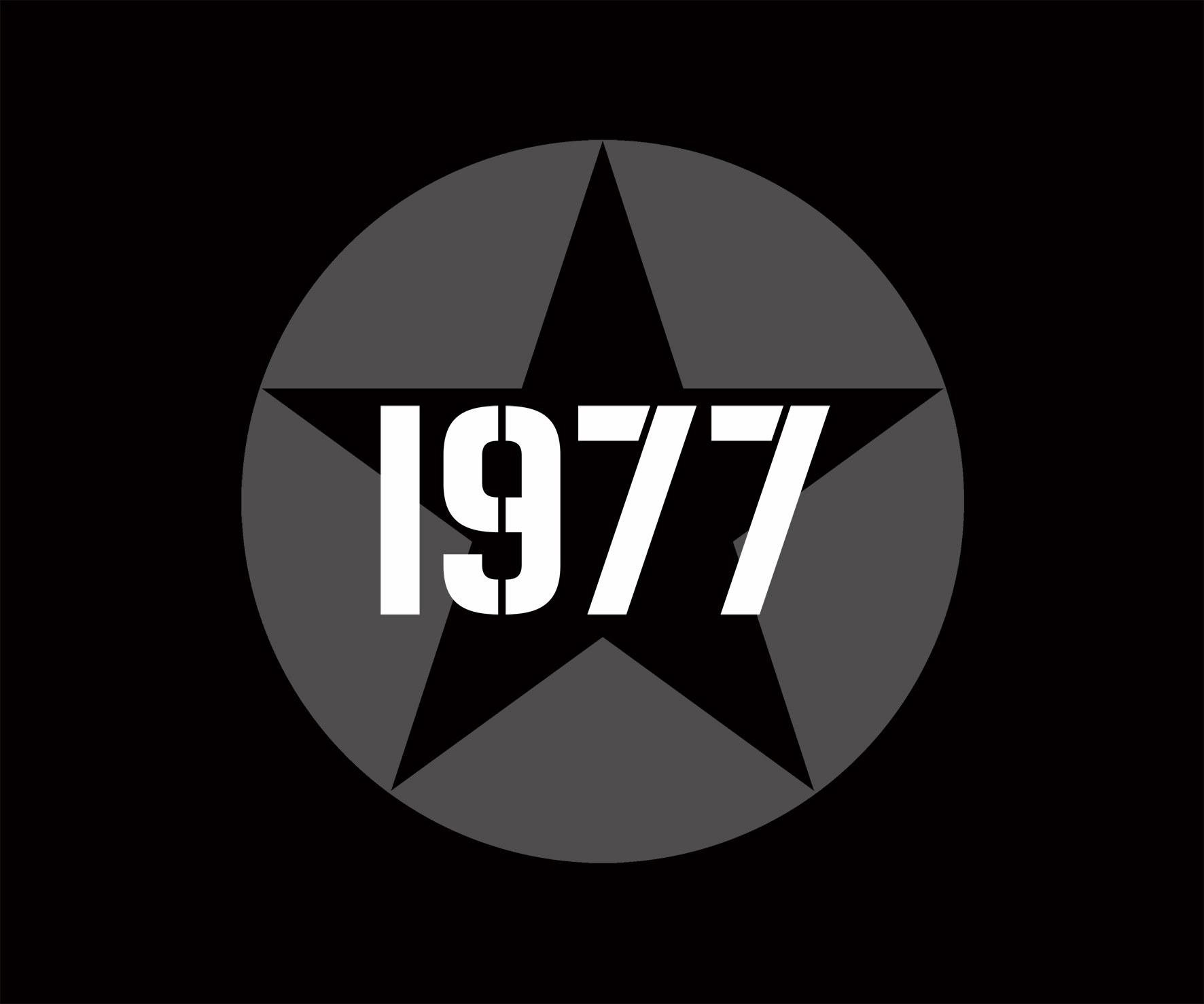 But it was The Clash that more than anyone who symbolised the punk and politics mix , showcased on their debut album The Clash, released 40 years ago 8th April ’77. From being bored with the USA and angrily demanding a riot of their own via hate and war to non-existent career opportunities, fourteen tracks, played at furious speed to produce two-minute classics. The one exception their inspired cover version of Junior Murvin and Lee ‘Scratch’ Perry’s Police and Thieves, played slow, the lyrics almost spoken rather than sung backed by a pitch perfect reggae beat.
But it was The Clash that more than anyone who symbolised the punk and politics mix , showcased on their debut album The Clash, released 40 years ago 8th April ’77. From being bored with the USA and angrily demanding a riot of their own via hate and war to non-existent career opportunities, fourteen tracks, played at furious speed to produce two-minute classics. The one exception their inspired cover version of Junior Murvin and Lee ‘Scratch’ Perry’s Police and Thieves, played slow, the lyrics almost spoken rather than sung backed by a pitch perfect reggae beat.
The album cover shows the youthful threesome of Strummer, Jones and Simonon in their artfully stenciled shirts and jackets that was to become their signature stagewear uniform completed by the obligatory skinny jeans, white socks, black DM’s. The print quality is purposely poor to add a degree of authenticity that this band more than most hardly needed. But it was the back cover that is the more telling. A scene from the 1976 Notting Hill Carnival Riots 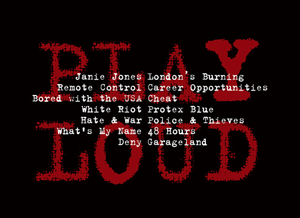 with the Met’s boys in blue, these were the days before RoboCop style body armour, riot shields, helmets with visors, in hot pursuit of black youth retreating and regrouping under the Westway flyover.
with the Met’s boys in blue, these were the days before RoboCop style body armour, riot shields, helmets with visors, in hot pursuit of black youth retreating and regrouping under the Westway flyover.
It was that experience in ’76 that inspired The Clash’s anthemic White Riot and the lines ‘ WHITE RIOT! I WANNA RIOT . WHITE RIOT! A RIOT OF MY OWN.’ At the time the National Front’s streetfighting racist army was laying waste wherever they marched, their leaders John Tyndall and Martin Webster pretty much household names, and the NF was getting indecent enough votes to suggest an electoral breakthrough might be a possibility. The potential for ‘White Riot’ to be misinterpreted then, and now too, is obvious. But the band’s intent couldn’t be clearer. Living, and recording in around the Westway they embraced the changes this West London community had undergone since the 1950s, Caribbean music, food and fashions as much a part of who The Clash were as rock and roll, Sunday roast and safety pins. It was a spirit of Black defiance they sought to share not oppose.
“ All the power is in the hands
Of people rich enough to buy it,
While we walk the streets
Too chicken to even try it.
And everybody does what they’re told to
And everybody eats supermarket soul food!”
A year after the album’s release and The Clash headline the first Rock against Racism carnival in London’s Victoria Park. The dayglo politics of this musical culture of resistance fitted perfectly with the agitprop look and lyrics of the band. Not just them either. From Polly Styrene of X-Ray Spex’s Oh Bondage Up Yours!punk feminism via Tom Robinson’s liberatory Sing If You’re Glad to be Gayand Birmingham’s Steel Pulse with tales of a Handsworth Revolution. This wasn’t just a line up that commercial promoters in ’78 would die for it was a platform to challenge prejudice both without and within that we could dance to, or jump about to more like.
In her book 1988 The New Wave Punk Rock Explosion, confusing actually published in 1977 Caroline Coon predicted of The Clash ‘ their acute awareness, and ability to articulate the essence of the era which inspires their music, will make their contribution to the history of rock of lasting significance. Happy times are here again.”
The Clash inspired, and continue to inspire, a wave a bands who play music we can dance to and march to in equal measure. Belfast’s Stiff Little Fingers and Southall’s Ruts, the Au Pairs stand out from back then. Poets too, who often styled themselves as ranters, Seething Wells, and of course Attila the Stockbroker. Then came the unforgettable and much-missed Redskins and the hardy perennial favourite Billy Bragg of so many musical incarnations. Today? A new wave (sic) of bands whose influences, musically and politically, can be traced back to ’77 era Clash would certainly include The Wakes, The Hurriers, Thee Faction, Joe Solo, Louise Distras, Captain Ska, Séan McGowan and more. Off the musical beaten track yet holding out for a better tomorrow with tunes to match.
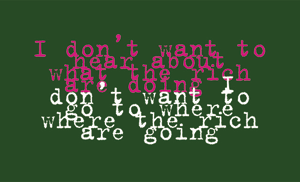 Like all successful musicians The Clash did become in their turn stars, celebrities, their appeal went mainstream, the venues became bigger and bigger though through force of circumstance the band bailed out before they reached U2’s overblown proportions or outstayed their musical welcome to play into their dotage Rolling Stones style. 1977 is a moment to look back to and remember but not to fossilise, that would be the antithesis of everything they represented or as the final track from the album put it :
Like all successful musicians The Clash did become in their turn stars, celebrities, their appeal went mainstream, the venues became bigger and bigger though through force of circumstance the band bailed out before they reached U2’s overblown proportions or outstayed their musical welcome to play into their dotage Rolling Stones style. 1977 is a moment to look back to and remember but not to fossilise, that would be the antithesis of everything they represented or as the final track from the album put it :
"I don't want to hear about what the rich are doing, I don't want to go to where, where the rich are going."
Garageland. That’s where they came from and never entirely left either. Its why more than anything else ‘77 Clash in 2017 matter still.
’77 Clash T-shirt range available now from Philosophy Football
‘ 77Clash Night is presented by Philosophy Football in association with the RMT and supported by the FBU, Brigadista Ale and R2 Magazine. Saturday 8th April, the 40th anniversary of the release of The Clash Debut Album side one played live ‘as was’, side two ‘played now’ by artists of today remixing and rewriting the originals. At Rich Mix, Shoreditch, East London. Tickets just £9.99 from here
All Power to the Ideals!
08.02.17
What kind of centenary celebration, Mark Perryman asks, does 1917 deserve?
 A century ago, 23rd February 1917, Russian women marched out in protest from the St Petersburg factories where they worked to defy Cossacks armed with swords and took control of the city’s streets. In less than a week they had been joined by hundreds of thousands of other workers.The St Petersburg Military Garrison mutinied in their support. A rebellion led by women for people’s power had begun.
A century ago, 23rd February 1917, Russian women marched out in protest from the St Petersburg factories where they worked to defy Cossacks armed with swords and took control of the city’s streets. In less than a week they had been joined by hundreds of thousands of other workers.The St Petersburg Military Garrison mutinied in their support. A rebellion led by women for people’s power had begun.
The 1917 centenary will be one of the publishing events of the year with writers from Left and Right battling it out in words over the legacy. The Royal Academy, the Design Museum, British Library and Tate Modern will all host major exhibitions of Revolutionary-era art. In October Philosophy Football, in association with the RMT, will present a night out at London’s Rich Mix Arts Centre ‘To Shake the World’ celebrating the culture of the Revolution. While during the day Michael Rosen and friends will host an event for families featuring the children’s books of the revolution. And there will even be a guided history walk to visit the hidden history of connections between London’s East End and 1917.
Not all agree that 1917 deserves any kind of celebration at all. Art critic Jonathan Jones writing in the Guardian rages against the spectacle of the Royal Academy ‘Revolution : Russian Art 1917-1932’ exhibition because “The way we glibly admire Russian art from the age of Lenin sentimentalises one of the most murderous chapters in human history.” Unless the Royal Academy (the clue might be in the title Jonathan) has reinvented itself as a bastion of Marxism-Leninism it is most unlikely they will be sentimentalising communism nor, given their reputation, is glibness likely to characterise how they showcase the art via context.
It is undeniable that the Russian Revolution cost lives, millions of lives. It took place in the era of World War One when millions of lives were being lost on the fields of France too. And this was the age of Empire with millions more lives sacrificed in the cause of imperial plunder and subjugation across the world. All three events, 1917, WWI, Empire were bloody. None should be sentimentalised. Each needs to be understood. Anything else is the denial of history.
In ’89 the fall of the Berlin Wall was famously claimed to mark ‘the end of history’. Yet a generation later the cause of radical change in an era of #dumptrump and #chaoticbrexit remains.The strength of the connections between these 2017 social movements and 1917 are there to be argued over, the history contested but to dismiss the revolution of a century ago as either wholly irrelevant or entirely the model for change? Either would be both arrogant and unwise.
The crucial point of the October Revolution was reached some seven months after those women workers first marched when the Russian Royal Family’s Winter Palace was successfully stormed. The signal for the assault to begin was the firing of a blank from the bow gun of the Russian warship, Aurora. The ship’s crew, inspired by the protesting women had mutinied back in February to side with the Bolsheviks.
And what followed 1917 was a movement, in Russia, but beyond too, that unleashed the most unprecedented wave of creative imagination. Today the art of the period has become chic, fit to hang on the most respected gallery walls,treated as an historic artefact not a tool of revolutionary change. Of course nobody would decry the simplistic beauty of Lissitzky’s Red Wedge but to disconnct the aesthetic of this and hundreds, thousands, of other pieces from a period when art, poetry, music, film, theatre and more from the ideas that propelled them into production with a revolutionary impulse would be a travesty. Perhaps the most famous cultural movement out of 1917 was contructivism. But these weren’t shapes artfully assembled without purpose. This was construction with designs on everlasting change, revolution. Too often this is represented, and reproduced too by those who fail to learn the lessons of 1917’s failings, as a top down didactic. Rather at its best, politically and artistically the Russian Revolution was a movement from below inspired by the human capacity to shake the world in which we live.
This is the point those who decry the 1917 Celebrations miss and some who join with the commemorations miss it too. This wasn’t a revolution made by Lenin, Trotsky, or Stalin. Though all three played their part of course in what it was, and what it became. But most of all this was a revolution made by ordinary people, women factory workers began it, rank and file sailors fired the starting signal, with their actions and achievements they inspired a vision for a better world. This is what we should celebrate 1917 for, the potential that we the people have, together, to effect change.
Philosophy Football’s 1917 Centenary range of T-shirts is available here
Further reading
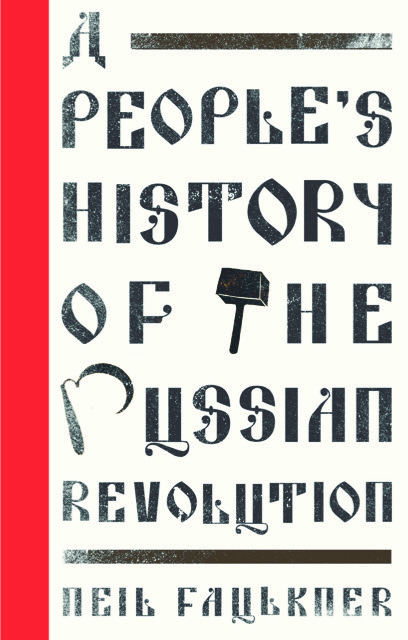 Neil Faulkner, A People’s History of the Russian Revolution is available from here
Neil Faulkner, A People’s History of the Russian Revolution is available from here
Mark Perryman is the co-founder of the self-styled ‘ sporting outfitters of intellectual distinction’ aka Philosophy Football
Heroes, and some Villains
17.01.2016
Sanjiv Sachdev reviews ‘Exhibit A’ by Hugh Tisdale and Dan Murrell
‘Fame, puts you where things are hollow’ -David Bowie
Celebrity masks of the likes of Simon Cowell, Princess Diana and Robbie Williams, are a familiar sight in tourist sites and seaside resorts. ‘Exhibit A’, a new show by Hugh Tisdale and Dan Murrell, converts this commonplace tourist trinket to witty, subversive and sometimes disturbing effect.
A rich seam of political caricature runs through British art; from Hogarth, James Gillray and Thomas Rowlandson to modern day equivalents of Peter Kennard, Martin Rowson and Steve Bell, the wealthy, privileged and powerful are interrogated, savaged, scrutinised. ‘Exhibit A’ stands in this tradition. The legacy of John Heartfield’s coruscating photomontages, that foretell and depict the savagery of the Third Reich, is also evident. There are also echoes of that notorious inquisitor of fame, Warhol, the presence of Mao and Monroe inevitably invite comparisons. Fame, benign or malign, is weighed and questioned. In an era where fame is no longer seen as a by-product of achievement, although it still often remains that, but a pre-eminent value in its own right, these questions are worth posing.
Masks have a long history in culture and art, enabling the concealment of individual identity and the assertion of others. Greek theatre masks enabled transformation into an array of roles, be it satyr or god, young or old, man or woman; Venetian masks were a subversive response to one of the most rigid class hierarchies in European history; African masks hugely influenced Picasso’s revolutionary ‘Les Demoiselles d’Avignon’; ‘V for Vendetta’ Guy Fawkes masks were a ubiquitous feature of the Occupy era. Today’s Facebook age has social media ‘masks’ that portray cheery pictures of full lives of contentment and achievement concealing mishaps, setbacks or flaws.
Fifty mask images, of mostly twentieth century figures, line the gallery walls. Appearances are deceptive – what initially appear to be photos, actually use a range of techniques including intricate drawing, crayon, watercolour as well as deft photo-shopping. Some are black and white, others in colour. The punched out eyes, varying in size and character, of the masks inherently produce a dead eyed, glassy glare, removing human warmth with blankness. Despite this, some of the pictures retain a benign aspect – including Orwell - sans eyes, Big Brother isn’t watching you? - the Dalai Lama, Stalin, in ‘Uncle Joe’ mode rather than that of murderous despot – the cult of personality as variant of the cult of celebrity, and an avuncular Nixon, a mask of whom was used in a bank heist scene in the film ‘Point Break’. Without eyes, Pele and Frank Zappa take on a decidedly belligerent air. Marie Curie appears to (aptly) assume X-ray eyes.
Some themes are apparent. There are several images of Artists as Art. Duchamp, one of these, would surely approve; sometimes using the techniques associated with that Artist, such as watercolour for Hockney. Damien Hirst, has ‘PRODUCT’ scrawled graffiti-style on his face and his lips appear sewn together, a critique of one whose artistic integrity is corrupted by mammon. The cold, menacing image of Myra Hindley seems to allude to Marcus Harvey’s infamous portrait. Musicians are a prominent presence. The biro-blue of William Burrough’s picture reflects Burrough’s shambolic writing method. Many of the pictures are of iconoclasts who are now icons - Wilde, Malcolm X, Dylan, Picasso, Simone.
Several juxtapositions are striking. A coarse, Super-8-textured image of JFK, with an extra bullet hole added, is near a black and white one of the last images of Lee Harvey Oswald, shortly to be assassinated himself. Nixon smiles near the terrified face of a Vietnamese child. A saccharine, almost kitsch, Christ stands close to Lennon, bringing to mind that latter’s then controversial remark that “We’re [the Beatles] more popular than Jesus”. Some iconic fictional figures are present – the pared down Clockwork Orange is especially effective and memorable.
One of the most disturbing images is that of Jimmy Saville, whose ghoulish black and white face, redolent of an almost fairy tale evil, wears rose-tinted glasses to chilling effect. Another horrific image is that of 2nd Lieutenant Henry Lumley, whose grievous first world war wounds still shock and appal.
The exhibition is one of unsettling art for unsettling times. Trump, in all his orange, poisoned open-mouthed glory, is, with grim inevitability, one of the 50, and was selected before his shock victory. With its thoughtful blend of reflection, comment and protest the show merits a wide audience.
Exhibit A is at Rich MIx, Shoreditch, London until 29 January, exhbitin details and times here
After the eating and drinking, the sporty?
27.12.16
A selection of 2017 sporting reads by Mark Perryman for the post-festive recovery period
There’s nothing like Christmas to put on an inch or two where we don’t want to. Sitting in front of the TV for hours, days even, on end doesn’t help much either. For many, a New Years resolution to add more physical activity to the weekly routine of eat, sleep, work, repeat is the self-imposed antidote. So what better time to recommend a sporting title to the 2017 must-read list?
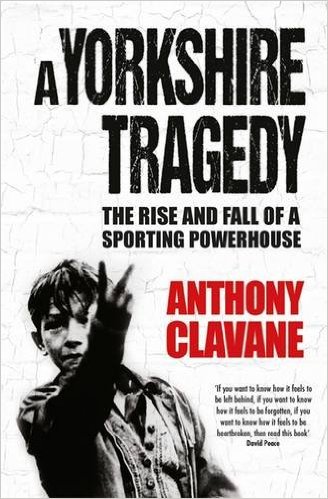 Anthony Clavane’s A Yorkshire Tragedy is the best possible starting point for such an endeavour combining as it does social history and an insight into why both participants and spectators put themselves though the trials and tribulations of winning and losing. And no you don’t have to be from God’s own county to side with the author’s appreciation of Yorkshire grit either. Or for an alternative explanation of the special appeal of sport try Sports Geek by Rob Minto which in words, statistics and pictures explains what it is about sport that will provoke endless arguments in the coming year.
Anthony Clavane’s A Yorkshire Tragedy is the best possible starting point for such an endeavour combining as it does social history and an insight into why both participants and spectators put themselves though the trials and tribulations of winning and losing. And no you don’t have to be from God’s own county to side with the author’s appreciation of Yorkshire grit either. Or for an alternative explanation of the special appeal of sport try Sports Geek by Rob Minto which in words, statistics and pictures explains what it is about sport that will provoke endless arguments in the coming year.
No sport comes close to football in the breadth and ferocity of such arguments it provokes. For everyone who loves a club there’ll be others who loath it. Europe’s ‘super clubs’ provide such emotional splits in abundance, Uli Hesse’s Bayern : Creating a Global Superclub provides the story of one such club known throughout the Bundesliga as 'FC Hollywood' for the non-German reader. Or for unpicking what it is about Argentine football that appeals and appals in almost equal measure read Angels with Dirty Faces by Jonathan Wilson, one of those writers who writes about the familiar in the most unfamiliar of ways. Every now and then an individual player comes along who transcends almost all loyalties to inspire universal interest and irresistible admiration. Johan Cruyff was undoubtedly one such player and his posthumously published autobiography My Turn helps us to understand why. Cruyff passed away in 2016, another kind of passing away that was no less emotional than the loss of a footballing great was West Ham’s move from their beloved ground to the super stadium built for the 2012 London Olympics. A move chronicled with sensitivity and sensibility in Pete May’s Goodbye to Boleyn. It was a move that provoked much controversy in terms of public subsidy, sporting legacy, access, community and more. The Routledge Handbook of Football Studies is testament to the necessity of recognising this kind of context in which the game is played and watched and as such is surely destined to become the definitive academic text on the subject. A more lyrical approach to football’s qualities is provided by Norwegian author Karl Ove Knausgaard in his elegantly written Home and Away. For the dark side of world football there’s no better source of understanding the going wrongs at FIFA than the peerless John Sugden and Alan Tomlinson, Football, Corruption and Lies revisits their earlier writing on this subject. A read and argument that not only has served the test of time but has been proved absolutely right too. .
Football at its best however means we can always dream of something better. Duncan Alexander’s Opta Joe’s Football Yearbook will become I’m sure an annual classic to distinguish the fantasy of football’s dreamers from the statistical reality. But then we will always have the fairtyale of Leicester 2015-16 , retold brilliantly by Rob Tanner in 5000-1.
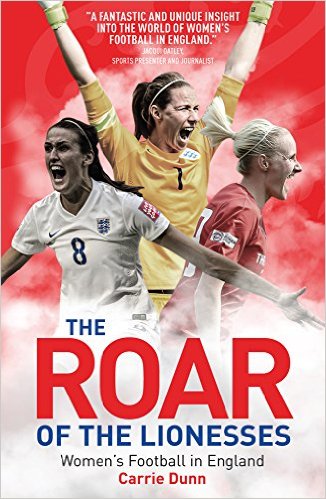 The international stage for England at any rate has been more horror than fantasy pretty much since World Cup 2010 onwards. Steve Mingle provides a reminder of happier, more successful times in When England Ruled the World At least in 2017 there are no tournaments for England to make an early exit from. In contrast Don’t Take Me Home by Bryn Law is the story of semi-finalists’ Wales successful run at Euro 2016 through the tales of the team’s huge and boisterous travelling support. England’s men’s women meanwhile have Euro 2017 to look forward to and as World Cup semi-finalists this century, 2015, unlike their male counterparts ,who haven’t made it that far in any tournament since 1996, they remain serious contenders. Carrie Dunn’s Roar of the Lionesses is the unrivalled account of the rise, and rise, of an England women’s football team to the top of their game.
The international stage for England at any rate has been more horror than fantasy pretty much since World Cup 2010 onwards. Steve Mingle provides a reminder of happier, more successful times in When England Ruled the World At least in 2017 there are no tournaments for England to make an early exit from. In contrast Don’t Take Me Home by Bryn Law is the story of semi-finalists’ Wales successful run at Euro 2016 through the tales of the team’s huge and boisterous travelling support. England’s men’s women meanwhile have Euro 2017 to look forward to and as World Cup semi-finalists this century, 2015, unlike their male counterparts ,who haven’t made it that far in any tournament since 1996, they remain serious contenders. Carrie Dunn’s Roar of the Lionesses is the unrivalled account of the rise, and rise, of an England women’s football team to the top of their game.
Following football however cannot be reduced to World Cups, Euros, the Champions and rich runners up League, your Chelseas, Uniteds and Cities. Need a 2017 football New Year’s Resolution? Why not try a game in a city you’ve never visited at a club you don’t know?
 For those with such internationalist ambitions Stuart Fuller’s The Football Tourist, his second volume of such epic travelling tales, is the very necessary handbook for overseas trip ideas and inspiration. If the domestic gam is likely to suffuie in providing 2017 reinvigoration of a love of football the photography and accompanying text in Beyond the Turnstiles by Leon Gladwell is just the kind of cure required. Many of Leon’s photos feature the non-league game, a portion of the game of increasing appeal to the disillusioned and no better book has ever explained the reasons why than Nige Tassell’s The Bottom Corner. Fed up with football as a day trippers’ day out, never off the TV, players on the front pages for all the wrong reasons, the riches and greed. Despite Leicester none of this will be getting any better in 2017. Read Nige’s book, if not already a fan, give one of the clubs he visited a try out, my own Lewes FC gets a tasty mention, and ensure yourself a happier new year.
For those with such internationalist ambitions Stuart Fuller’s The Football Tourist, his second volume of such epic travelling tales, is the very necessary handbook for overseas trip ideas and inspiration. If the domestic gam is likely to suffuie in providing 2017 reinvigoration of a love of football the photography and accompanying text in Beyond the Turnstiles by Leon Gladwell is just the kind of cure required. Many of Leon’s photos feature the non-league game, a portion of the game of increasing appeal to the disillusioned and no better book has ever explained the reasons why than Nige Tassell’s The Bottom Corner. Fed up with football as a day trippers’ day out, never off the TV, players on the front pages for all the wrong reasons, the riches and greed. Despite Leicester none of this will be getting any better in 2017. Read Nige’s book, if not already a fan, give one of the clubs he visited a try out, my own Lewes FC gets a tasty mention, and ensure yourself a happier new year.
The basic appeal of football, or any other sport is the fulfilment of impossible dreams. Few will ever come close to Jo Pavey’s story in that regard. An elite athlete for her entire adult life and a big chunk of her adolescence too Jo won her first ever Gold Medal at the age of 40, This Mum Runs is her story. For most of us though running is more about just getting round, perhaps a Pb, and a prized finishers’ medal too. This is what continues to make running races such mass participation events which for many have little or no connection to the competitive. Don’t Stop Me Now by Vassos Alexander provides story after compelling story from every level of athletic prowess to reveal the enduring attraction and challenge of completing a 26.2 mile marathon with or without time to spare.
The GB 1980s jogging boom has a lot of parallels with the cycling revolution of the past five years or more. Elite Olympian success, easy to access sport, mainly recreational but with mass participation events for those who prefer a competitive edge yet even these are relatively unstructured and informal. The fashion designer Paul Smith’s Cycling Scrapbook is a beautifully produced account of the visual culture of cycling that has proved seductive enough for men who really should know better to kit themselves out in lycra. Magnum Cycling with text by Guy Andrews has an array of, mainly archive, photography that will persuade almost anyone that road cycling is simply the most photogenic of all sports, bar none. Camille J McMillan’s Circus does a similar job with modern day cycling, the incredible sight of Le Tour on the road as engaging as it has ever been. A key part of the look is of course what the riders wear , The Art of the Jersey by Andy Storey provides a richly well-informed history of this most essential, and colourful, piece of any cyclist’s kit. Apart from that it’s all about the bike, or in Lance Armstrong’s case who made the phrase his own it turned out it wasn’t. Lined up on the road in the peloton, breakaways, bunch sprint finishes and the rest it can all get hellishly complicated to follow. Fortunately ITV4 have recruited one of the finest double acts of sports reporter and former star in any televising of a sport, Chris Boardman and Ned Boulting. They both have new books out which explain their appeal as presenters and why they work so well together on air. Triumphs and Turbulence is Chris’s autobiography from Olympic success in ‘92 to businessman and broadcaster today. Ned’ s Vélosaurus helps the reader to understand the universally French language of Le Cycling with wit and insight, s’il vous plait. But of course with cycling watching is not even half the story, it is what we can do that really counts. What other sport can be a means of getting to work, carrying the shopping home, excuse for a day out with the kids or holiday even. The binary divide of recreation vs competition demolished. Though we’d all like to cycle uphill minus the puff mind. Never mind buying an electric bike as the solution RideStrong by Jo McRae is a handbook of do-it-at-home exercises to condition our bodies for faster and longer rides in 2017.
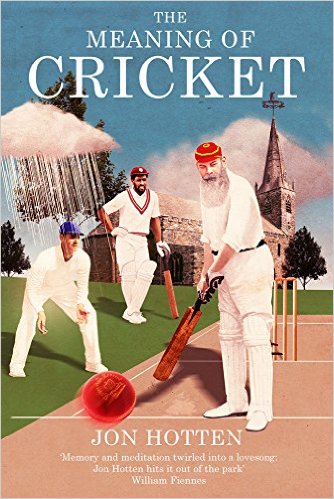 Next year will close with an ‘away’ Ashes series in Australia with most of England’s test cricket between now and then seen as a build up to this most serious of grudge matches. Jon Hotten’s The Meaning of Cricket is the perfect companion volume to explain why the long wait will be more than worth it.
Next year will close with an ‘away’ Ashes series in Australia with most of England’s test cricket between now and then seen as a build up to this most serious of grudge matches. Jon Hotten’s The Meaning of Cricket is the perfect companion volume to explain why the long wait will be more than worth it.
In terms of GB sporting success in 2016 nothing came very much close to the Gold, Silver and Bronze haul at the Rio Olympics and an historic third place in the Medal Table, helped it has to be said though by the justifiable yet significant absence of most of the Russian team. The Impact of the 2012 Olympic and Paralympic Games edited by Kevin Dixon and Tom Gibbons details the significance, or otherwise, of such Olympian success by looking back to the previous, ‘home’ Games and their meaning today. Then before you know it the 2018 Winter Games will be upon us and then Tokyo 2020. The Olympic Cycle is never-ending, hardly giving any space for reflection and critical analysis. Providing plenty of the latter and helping perhaps to prevent all the excitement over the success of Rio’s Team GB obscuring 2017’s sinking levels of sports participation Understanding the Olympics by John Horne and Garry Whannel provides a good read for those whom the next sporting year will include a fond looking back to Rio while wondering hat all those medals won will mean for the rest of us in 2017. .
But it isn’t just the quadrennial Olympics that should ignite the need to engage with the collision between the sporting and the political. The Routledge Handbook of Sport and Politics is broad-ranging, comprehensive and incisive in its cataloguing of how this mix happens and shapes so much of life beyond the arena.
 Beyod all these good, but serious, reads my New Year treats will include a strip-cartoon, a spot of colouring in, a novel and the first of a splendid new seris of sports books for children. The Illustrated History of Football by David Squires is a comic-book style approach to where our much-fabled ‘People’s Game’ came from and how it’s ended up. With an adult colouring book we can create our own such books, providing hours of endless drawing fun.Two sporting versions of the format that stand out are Colouring the Tour de France by James Nunn and William Fotheringham with its attention to historic detail. And Richard Mitchelson’s Grand Tour featuring a vast array of artistic games and puzzles to provide hours of endless fun while waiting for the cold, dark wintry morning to clear before the joys of a springtime ride. Alternatively, another very very good football novel from Anthony Cartwright Iron Towns set, more of less, in the Midlands’ Black Country. Few authors manage to combine sport and fiction with any degree of success, Cartwright does, superlatively well. Don’t let the grown-ups have all the fun either. Football School by Alex Bellos and Ben Lyttleton will appeal to Primary School-age children via the cunning use of football as the means of learning.
Beyod all these good, but serious, reads my New Year treats will include a strip-cartoon, a spot of colouring in, a novel and the first of a splendid new seris of sports books for children. The Illustrated History of Football by David Squires is a comic-book style approach to where our much-fabled ‘People’s Game’ came from and how it’s ended up. With an adult colouring book we can create our own such books, providing hours of endless drawing fun.Two sporting versions of the format that stand out are Colouring the Tour de France by James Nunn and William Fotheringham with its attention to historic detail. And Richard Mitchelson’s Grand Tour featuring a vast array of artistic games and puzzles to provide hours of endless fun while waiting for the cold, dark wintry morning to clear before the joys of a springtime ride. Alternatively, another very very good football novel from Anthony Cartwright Iron Towns set, more of less, in the Midlands’ Black Country. Few authors manage to combine sport and fiction with any degree of success, Cartwright does, superlatively well. Don’t let the grown-ups have all the fun either. Football School by Alex Bellos and Ben Lyttleton will appeal to Primary School-age children via the cunning use of football as the means of learning.
And for the kitchen? Yes sport and the pleasures of eating can be combined though very few cookbooks make that link. Hannah Grant’s The Grand Tour Cookbook does with an imaginative device of a stage race through recipes to fuel the cycling body, and suitable for most other endurance sports’ too. This will be one of my favourite reads in 2017.
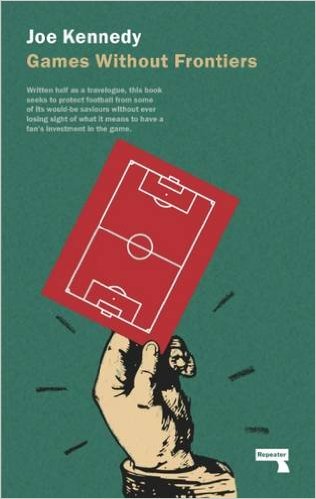 But my top sports book choice as a New Year must-read has to be Games without Frontiers by Joe Kennedy. Not long, but packed into its 132 pages is an analysis and context to help us understand football, sport,and just about everything in-between via political theory and cultural studies and a fine writing style. Read it before January’s out and the rest of the sporting year will I can assure you make a heap more sense.
But my top sports book choice as a New Year must-read has to be Games without Frontiers by Joe Kennedy. Not long, but packed into its 132 pages is an analysis and context to help us understand football, sport,and just about everything in-between via political theory and cultural studies and a fine writing style. Read it before January’s out and the rest of the sporting year will I can assure you make a heap more sense.
Note: No links in this review to Amazon, if you can avoid buying from tax dodgers please do so.
Mark Perryman is the co-founder of the self-styled ‘sporting outfitters of intellectual distinction’ akaPhilosophy Football
'If We Want It' Our 2016 Christmas Message
23.12.16
At Philosophy Football we make the claim 'We don't sell T-shirts.' Instead we are in the business of ideas and ideals printed on to 100% cotton, double-stitched, sizes small-XXL and won't fade or shrink despite numerous spin cycles. Testament to that is the £1580 we raised in 2016 for Hope not Hate in memory of Jo Cox via our Hope not Hate T-shirt while this Christmas we've donated £740 to Cuba Solidarity for Fidel thanks to sales of our Fidel T-shirt plus another £385 for the Hastings Furniture Service helping the homeless settle back into housing via Mark Thomas' Domestic Extremist tee.
In short we create designs not products.We've put some of the best of these from 2016 together with images produced by others we admire and sometimes work with too, added a Louis Armstrong soundtrack and turned it into a non-regal Christmas message you won't have to interrupt the turkey or nut roast to watch. Enjoy, with our seasonal compliments and New Year thanks.
- The Death of Innocence
27.12.25 - Thatcherism Today
04.10.25 - Top Ten Books to Understand Labour Conference
26.09.25
